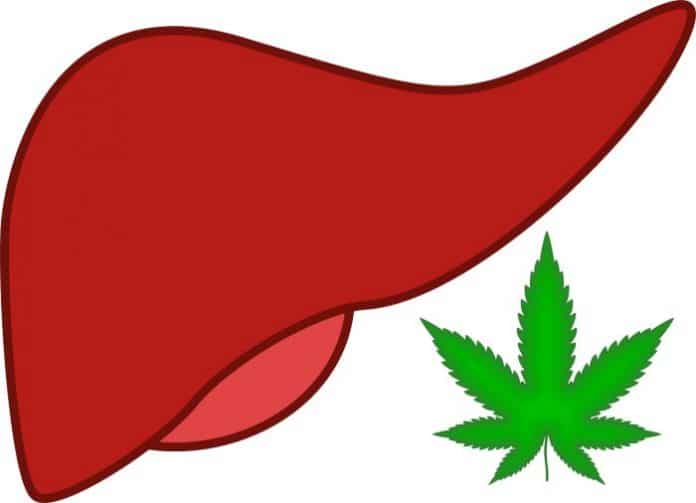
Image: GDJ/Open-Clipart-Vectors
Researchers in the USA have found evidence to suggest the use of cannabis by alcoholic patients is associated with reduced incidence of liver disease.
Alcoholic liver disease (ALD) is a very serious problem. The most prevalent types are fatty liver, alcoholic hepatitis and cirrhosis – and in some cases, patients can have all three. 10 percent to 15 percent of people with alcoholism develop cirrhosis.
Other ALD’s include steatohepatitis, fibrosis and hepatocellular carcinoma.
In Australia, cirrhosis attributed to alcohol consumption was responsible for an estimated 6,825 deaths from 1992 to 2001. In the USA, there were 19,388 alcoholic liver disease deaths in 2014.
Utilising 2014 Healthcare Cost and Utilization Project – Nationwide Inpatient Sample (NIS) discharge records of patients 18 years and older with a history of abusive alcohol use, researchers from the University of Massachusetts Medical School and several hospital medical center looked into the cannabis-ALD prevalance connection.
The researchers found alcohol users who also used cannabis demonstrated lower odds of developing alcoholic steatosis, steatohepatitis, cirrhosis and hepatocellular carcinoma. Also a surprise was the finding that dependent cannabis users showed significantly lower odds than non-dependent users in terms of developing liver disease.
A total of 319,514 records were studied, with approximately 27,478 of patients categorised as non-dependent cannabis- users and around 4,345 considered dependent.
The study results have been published in the peer-reviewed journal Liver International.
One of the very interesting tie-ins with this research is another study we mentioned last year. In October 2017, we reported researchers in the USA and South Korea suggested cannabis also has a protective effect against non-alcoholic fatty liver disease (NAFLD).
The results from the latest study shouldn’t act as a flag for alcoholic patients to start using cannabis in preference to treating their alcoholism through abstinence and rehabilitation under medical supervision. However, it’s another very interesting development pointing to the potential protective effect cannabis may have in relation to the liver – and the possibility of isolating the compounds responsible for this effect to create medicines.
One of these compounds may be cannabidiol (CBD), a non-psychoactive cannabinoid known to have anti-inflammatory properties. As well as marijuana, CBD can also be extracted from industrial hemp.
No comments:
Post a Comment